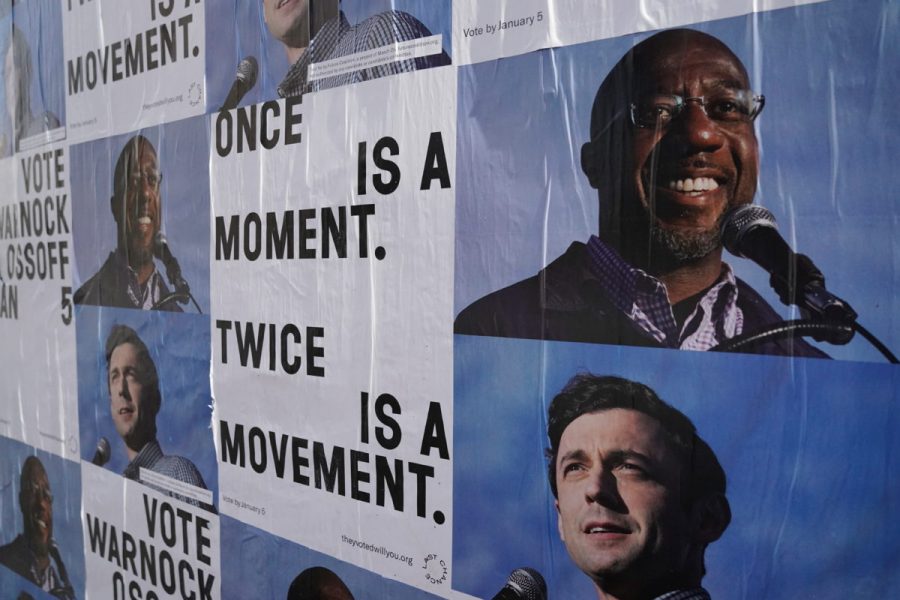Georgia Runoff Elections
Campaign ads for Jon Ossoff and Raphael Warnock are seen on a wall near the John Lewis mural the day after the U.S. Senate runoff elections in Atlanta, Georgia, U.S., January 6, 2021. REUTERS/Elijah Nouvelage
It’s official: both of Georgia’s Democratic Senate candidates have triumphed over their Republican opposition. When Reverend Raphael Warnock and Jon Ossoff are sworn into the Senate, they will bring with them not only fresh ideas and potential, but also Democratic control of Congress. And with incoming Democratic President Joe Biden, it seems like some progress might be made this presidential cycle after all.
The runoff elections were held because of an extremely tight race during the initial November Senate election. In some Southern states like Georgia, North Carolina, and Arkansas, it’s required that a second election be held if the winner fails to reach a fifty percent of votes. Though both incumbent Republican candidates initially “won” the general Senate election, they fell just short of the margins required to declare victory and the runoffs were held. Since the Presidential election, where Georgia turned blue for the first time since nineteen-ninety-two, in great part due to activists such as Stacey Abrams who registered an unprecedented number of voters, Georgian Democrats have been held on a pedestal as progressive Americans who are willing to fight for the future of their country despite negative Northern stereotypes about the stagnant South.
The two incoming Senators from Georgia have very interesting backgrounds. The first winner to be announced, Reverend Raphael Warnock, is a Black, Baptist preacher from Atlanta, has been involved in spirituality and politics since his youth. A man who has been compared numerous times to Dr. Rev. Martin Luther King Jr., his social justice work through the church has been both lauded and criticized by many. He will serve as Georgia’s first Black senator
Jon Ossoff’s victory was announced mid-afternoon on Wednesday, January 6. He has a political history not just as a politician, but as an investigative journalist and documentary film producer. His campaign largely hinged on the Trump administration’s ineffective response to the virus and open criticism of the President himself. He will serve six years in the Senate, as oppose to Reverend Raphael Warnock’s two. His victory will make him the youngest Senator in the United States, the first ever Jewish Senator from Georgia, and the first Jewish Senator from the South since David Levy Yulee of Florida, elected 1845.
Another historic election has led to more historic results. In the middle of a tempestuous time and a violent power struggle between the Left and Right, the election of these two men to the United States Senate has shown that Georgia is more liberal than we knew and that this pattern does not seem to be changing anytime soon. It also paves the way for decisive action from Congress on pressing issues such as climate change, police brutality, and the prevalence of social injustice in our time.


